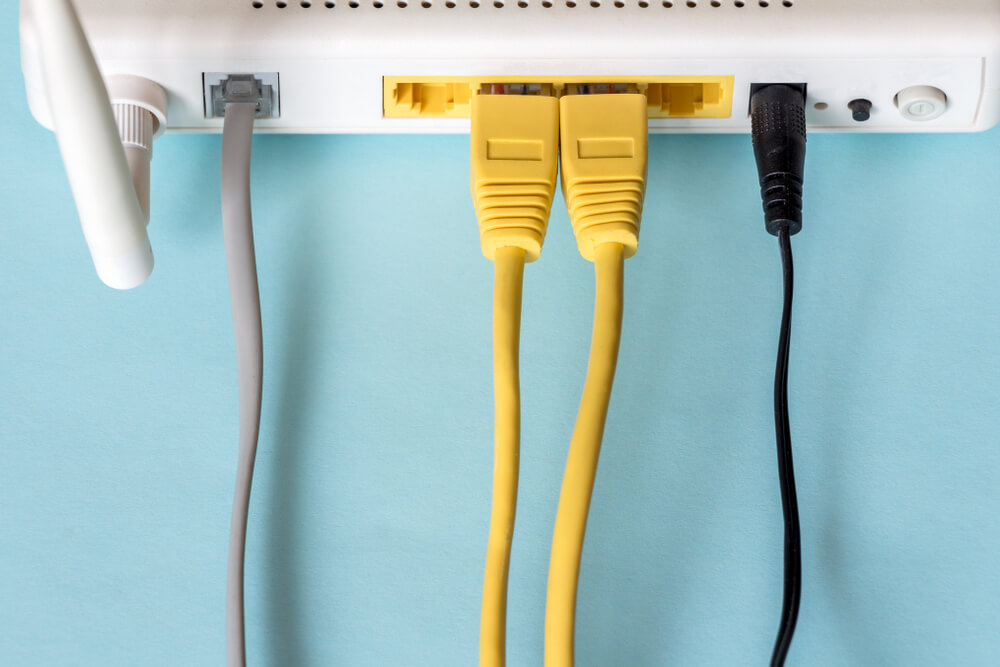Many people wonder why they need to pay for a landline in order to have broadband in their homes. Younger generations may never have used a landline and can't help but query why they have to pay for one costing up to £200 annually. Fortunately, there are now alternatives for people who no longer want or need to pay for line rental.
Why Do We Have a Landline?
It is estimated that more that 90% of the over-60's still use a landline to make
and receive phone calls. Many people couldn't imaging not having a landline in their home. In contrast,
this figure falls drastically for the under-30's, some of whom have never been used to making phone calls
this way.
However, the good old landline is not just for phone calls! The majority of broadband packages available in
the UK use the landline to connect homes to the network. Landlines can also be used to connect home security
systems to their emergency call centres.
Why Do Broadband Providers Use Landlines?
First of all, there are four different ways to connect to the internet:
- ADSL (Asymmetric Digital Subscriber Line)
- Fibre
- Cable
- 4G Mobile Broadband
The most common of these methods of connection in the UK at the moment are ADSL and Fibre Broadband. Both use
the copper wires in your telephone line to send and receive internet data at high speeds.
ADSL is also known as Standard Broadband and was the first technology that allowed us to surf the web and talk
on the phone at the same time. This is possible because the internet data travels along the copper wires at a
different frequency to your voice signals. Standard Broadband uses the copper wires of the telephone system
from your home to the exchange.
Fibre Broadband still needs to use the copper telephone wires, but only to connect your home to the nearest
on-street cabinet. Fibre Broadband then uses high-speed fibre optic cables to connect the cabinet to the exchange.
Broadband That Doesn't Need a Landline
Cable Broadband, as the name suggests, uses the cable television infrastructure
rather than the telephone system to connect to the internet. If you choose this type of broadband, you will
not need a telephone landline - but you will need to live in an area which has a cable network available.
4G Mobile Broadband doesn't need any cables or telephone lines, it works on the 4G (4th generation
communications system) network just like your mobile phone. It is a great choice for people who live
in rural areas which may not have good fibre or cable options for them. 4G broadband does rely on a
good strong mobile signal. In areas where the network signal is weak, your connection will be slower
and more unstable.
So Do I Need a Landline?
The answer to this question depends on the type of broadband connection you want
to use. It also depends on what is available to you in your area.
ADSL & Fibre broadband are by far the most readily available. Consequently, you are more likely to find a
cost-effective & competitive deal with this type of connection. If you decide on either of this type
of broadband, you will need a landline and will therefore need to pay rental for this. Line rental charges
vary from around £13 per month up to £22 per month depending on the deal so always compare all of the costs
and benefits.
If you decide to go for Cable Broadband, you will not need a landline. Cable Broadband availability is not as
widespread as ADSL or Fibre. Virgin Media is the main provider of cable broadband and is currently only
available to 44% of UK homes. They are hoping that this figure will rise to 53% in 2020 and they are
continually extending their network.
Likewise, if you choose 4G Mobile Broadband, you will not need to have a landline. Mobile broadband is a great
choice for people who need to access the internet while they are on the move. It is also an ideal choice
for students or for people who are in short-term lets. If you are planning to move house soon, or move
on a regular basis, mobile broadband will mean you won't need to migrate your contract from one property
to another. This will save money and time - one less hassle for you to worry about.
In Summary
You can have broadband without a landline. Whether connecting to the internet
this way is right for you depends on many factors. Cable or mobile broadband may not be available in your
area. If it is available, it may prove to be more expensive than package which includes line rental.
The bottom line is that a few minutes or hours spent comparing your options and deciding what your priorities
are will save you money and time further down the line.
When the time comes to renew your current broadband contract, or if you are considering taking out your first
contract, comparing your options with BillBuddy will help you to decide which type of connection is
the right one for you.



